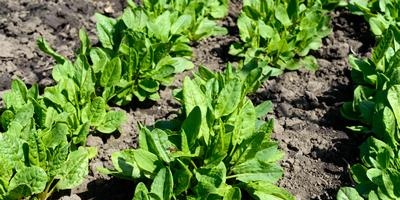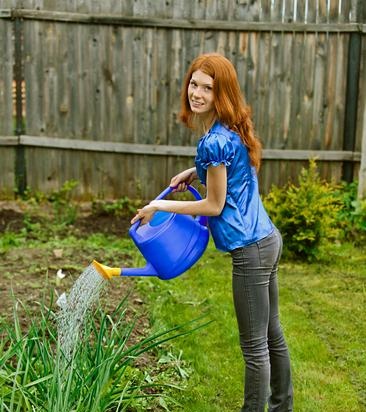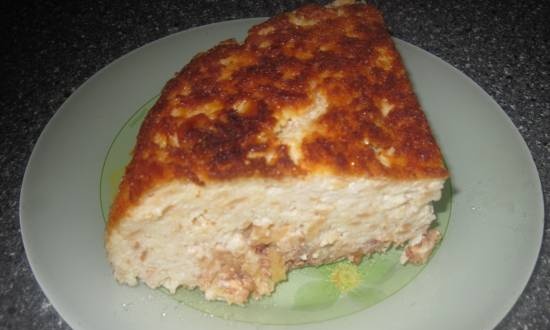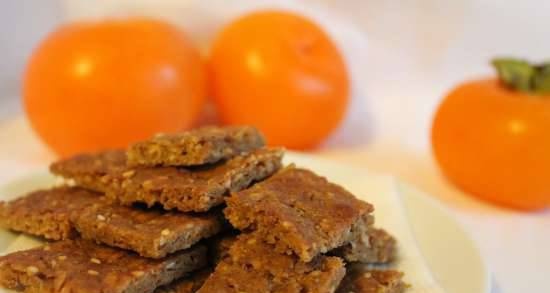|
 So, you are citizens. And spend most of the year in the city without a break: at home, work, public transport, queues in shops ... And nervous stress, and fatigue ... So, you are citizens. And spend most of the year in the city without a break: at home, work, public transport, queues in shops ... And nervous stress, and fatigue ...
And of course, dreams and dreams, sweet thoughts about summer, when you can spend Saturdays and Sundays, or even a whole vacation outside the city, in the country, where you have a modest house and a plot of several hundred square meters. Part of it is a small garden, and the other is a vegetable garden, where you will definitely plant potatoes, you will cultivate cucumbers, carrots, radishes, parsley, dill ... Here, in the city, dreams of a country life, of joining labor on earth are very sharp. And the closer the spring, the more relentless they are. The first trip of the season to the country and - you
experiencing real bliss. G.R.Derzhavin wrote about him, this bliss, in his rather famous poem "Praise of Rural Life":
... But he sits in his garden
Blossoming bushes and vegetables;
Or wild trees, with a crooked knife
By cutting off the stumps, and the fruit giving
Grafts grafts to them ...
About the dacha, its optimal design, the arrangement of the territory, the indispensable bathhouse on it, a hammock, a garage - we will not talk about this today. There are many modern projects of summer cottages, we have different tastes. Some need a garage for a car, while others do not need it, because they do not have the car itself ... Let's talk today about the vegetable beds in our country house and about the garden planted with our own hands.
And let's start with the garden. A popular proverb says: "What kind of order is a vegetable garden without beds?" And so it is. But those are mistaken who think that breaking a garden and planting vegetables is easier than steamed turnips, and, if you like, swede. Only an amateur can think so lightly. By the way, in the garden of an average summer resident, root crops (beetroot, carrots, rutabagas, radishes) occupy the second place of honor after potatoes, far ahead of (if we compare the areas allotted for cultivation) cabbage, tomatoes, even cucumbers. But all of the above crops are not yet a complete list of vegetables that a modern summer resident seeks to grow. But how can you do without salad, onions, garlic, spinach, parsley, celery, dill, sorrel? And peppers, eggplants, zucchini, squash, beans, beans, peas ..? Only the suburban area is not rubber. This is why choice is necessary. And to the question of what is preferable to grow in your own garden, it is impossible to answer unequivocally. This is a matter of your taste. To what the soul lies more, then cultivate for health. But for the vast majority, I know, potatoes, tomatoes, cucumbers are preferable, carrot, radishes and greens - dill, sorrel, onions, parsley, salad, celery.
 The first condition that the gardener cannot do without is to correctly place vegetables on the site. You should not grow the same potatoes in the same place, even if you previously, respecting order in everything, once and for all set aside a corner for it. If crops are not changed every year in places, both pests and diseases can "fall" on them. Another thing is no less important: the future harvest depends on how good the predecessor is. Cucumbers, for example, are best placed where cabbage used to grow, and white cabbage - in the garden where carrots or cucumbers grew last season ... And in no way can one hope for a rich harvest of the same cucumbers if their predecessors there were pumpkin, squash, zucchini and ... cucumbers. The first condition that the gardener cannot do without is to correctly place vegetables on the site. You should not grow the same potatoes in the same place, even if you previously, respecting order in everything, once and for all set aside a corner for it. If crops are not changed every year in places, both pests and diseases can "fall" on them. Another thing is no less important: the future harvest depends on how good the predecessor is. Cucumbers, for example, are best placed where cabbage used to grow, and white cabbage - in the garden where carrots or cucumbers grew last season ... And in no way can one hope for a rich harvest of the same cucumbers if their predecessors there were pumpkin, squash, zucchini and ... cucumbers.
The second indispensable condition is to prepare the soil, fertilize it. Than? - Naturally, organics are best, namely slurry, manure, bird droppings, peat. Rotten manure and sifted through a large sieve is especially good as a fertilizer. In other words, it is quite possible, even you need to try to do without mineral fertilizers.After all, those who give a clear preference for "mineral water", especially nitrogen fertilizers, as a rule, end up with poor-quality vegetables that cannot be stored for a long time. Our grandfathers and great-grandfathers made do with natural fertilizers, then there was no “chemistry” at hand, but they did not know the need, they always had a harvest, and an excellent harvest. But at the same time, they used manure wisely. Some of us today are guided by the principle "you can't spoil porridge with butter." And they try to add as much manure as possible to the vegetable beds. Lo and behold - and the vegetables turned out to be clearly spoiled. Be aware that the excessive use of organic matter leads to the formation of nitrates that are harmful to human health in vegetables. ... So it is impossible to use manure "by eye" or to profess the principle "you cannot spoil porridge with butter". How to be? First of all, you need to analyze the soil on your site, determine how much humus, phosphorus, potassium is in it, what is its acidity. And only then set the rate of organic matter introduction. For the poorest, infertile soils, the rate of its introduction for vegetable crops is 7-9 kg per 1 square meter. m, for potatoes - 6-8 kg. But if you apply this amount of fertilizer to a relatively rich soil, the crop will surely have an increased content of nitrates.
I will give the recommendations of one amateur gardener who has never been left without a rich harvest. He is convinced that despite the fact that the acidity and properties of the soil may be different in one area, there is every chance of winning if you follow his scheme. In autumn, compost should be put on the dug up bed, in spring it should be sprinkled with a humus layer mixed with wood ash. For disinfection, you can water the bed with a solution of potassium permanganate (1 liter per 1 sq. M). Now plant any crops on it. And their yield will be 1.5 times higher than usual. Radishes, celery, sunflowers, pumpkin are especially successful. From a square meter of a garden, this friend of mine, dispensing, as you can see, without mineral fertilizers and pure manure, collects, for example, 20 kg of zucchini. It is a sin not to heed such a recommendation, for, I assure you, it comes from an expert.
The third condition (you cannot do without it either) is to carefully prepare the seeds for sowing. Having selected pure-bred, with good germination and germination, immerse them for literally a few minutes in a three-, maximum - five-percent solution of table salt, and then, which have settled to the bottom, rinse and dry thoroughly. Then do not be too lazy to take them out into the air to warm up in the sun.
... But the preparatory campaign is in general over. It's time to sow. The question is: when, in what specific terms? Onions, root crops and other cold-resistant crops are usually sown in late April - early May. The same period is most optimal for planting potatoes. Carrots, beets, parsley, lettuce are sown before winter. It is desirable that their seedlings appear before the first snow.
Stop! What are you doing? Do not bury each seed so zealously into the soil to the maximum depth. They may not germinate at all. For example, for carrot seeds the optimum planting depth is 1-2 cm, for cucumber seeds - 2-3 cm ... Do not sow too thickly, try to keep the distance between the seeds in the previously prepared shallow grooves a little more than a centimeter. This is for carrots and onions. A couple of centimeters - for turnips and beets.
Another case is when a gardener is dealing with seedlings. And this happens quite often, since the same cabbage or tomatoes are grown in seedlings. After transplanting it from a box to a garden bed, two weeks are needed to "rehabilitate" the roots and, at the same time, thorough, but reasonable watering.
The path from seed to seedlings is also not easy. Any seed must be sown only in its own time, by all means maintain the optimal temperature regime, water the seedlings, and then the grown seedlings, and even feed it a couple of times with liquid fertilizer.
 At last! Everything is sown and planted. The beds in your summer cottage are neat, clean.Now everything is decided by caring for plants - fertilizing with fertilizers, loosening, weeding, watering, pest and disease control. Weeds have appeared - they must be destroyed urgently. And best of all "on the vine." After rain, this can be done quite easily, since the loose soil does not hold the weed root systems so firmly. In essence, the soil in the garden bed can and should always be kept loose. Loosening and hilling plants are very important activities. Plus watering, for which the simplest watering can is suitable. And do not forget that along with a watering can for adults, there should be a watering can for a small family member - a daughter, son, granddaughter or grandson. Children, as a rule, willingly participate in watering the garden. Moreover, in order for a child to join the work on the ground from an early age, feeling all its charm, even a whole garden bed can be allocated at his disposal. Let him look after. At last! Everything is sown and planted. The beds in your summer cottage are neat, clean.Now everything is decided by caring for plants - fertilizing with fertilizers, loosening, weeding, watering, pest and disease control. Weeds have appeared - they must be destroyed urgently. And best of all "on the vine." After rain, this can be done quite easily, since the loose soil does not hold the weed root systems so firmly. In essence, the soil in the garden bed can and should always be kept loose. Loosening and hilling plants are very important activities. Plus watering, for which the simplest watering can is suitable. And do not forget that along with a watering can for adults, there should be a watering can for a small family member - a daughter, son, granddaughter or grandson. Children, as a rule, willingly participate in watering the garden. Moreover, in order for a child to join the work on the ground from an early age, feeling all its charm, even a whole garden bed can be allocated at his disposal. Let him look after.
For example, a small garden with cucumbers, warning the baby in advance that they should be watered only with water heated in the sun, young plants - in moderation, and fruiting (especially in hot weather) - much more abundant. And let him, under your strict guidance, learn to straighten cucumber lashes, take part in the harvest. When it comes not just about the fruits, but about the fruits of his own labor, the little gardener begins to acquire the nobility of his soul. I'm sure. And you? It is bad, just bad, when children do not know how potatoes, tomatoes, cucumbers are given ... It is not enough to have information that all this and much more grows on the earth. It is imperative to feel on your own, albeit small, but nevertheless experience that both the one and the other, and the third ... the result of man's hard work. The vegetable garden is rich only when the gardener works tirelessly and painstakingly.
I know a family in which parents try to entrust their son with the cultivation of one culture. Last year, when he was nine years old, he was in charge of dill, this year he deals with onions. In the full sense of the word, he is responsible for him. And, caring yesterday for dill, and today for onions, the boy, of course, with the help of mom and dad, masters the whole range of agricultural techniques - from soil preparation to harvesting. Responsibility gave him a genuine interest in the case. And since wise parents are still trying to develop this interest, obtaining special literature on varieties and methods of cultivating certain vegetables, the boy gradually came to the conviction: labor on the ground is an intellectual occupation. In addition, his parents have never blamed him: they say, he watered his garden with a delay or weeded it badly ... Shouts and endless claims turn him away from work. And dad and mom tried to do the opposite - so that their son loved labor on earth with all his heart.
You know, friends, if you talk about this kind of love, here is one good piece of advice for you: in no case, for yourself, and even less so for your children, do not turn the work on your personal plot or dacha into a sort of hard labor
duty. Let it be both feasible and joyful, even if your garden and garden are quite large. You can't just think that the same garden is primarily income for the family.
I remember one glorious book by E. Dubrovin "Waiting for a goat". His father, wounded and hungry for peaceful labor, returned home after the war. Two boys, the sons of a soldier, lost the habit of any parental control during the long absence of the head of the family, and from the first day he began to use a strong-willed method to teach them to perform a bunch of household duties. In response - sometimes senselessly violent protest. This tragicomic tale, from which much can be gleaned, proves with piercing clarity: such a fortress as the consciousness of a small person cannot be taken by an attack. Great patience is needed - once. And gradual, dosed introduction to work and order - two.
Of course, play is the most preferable for the child. He is in it like a fish in water. So let him play. Let him play "dad" or "mom", "head of the garden" or "farmer."So he will quickly and painlessly acquire the skills of working on the ground.
Sashina E.Yu. The ABC of Home Economics
Read now
All recipes
|
 So, you are citizens. And spend most of the year in the city without a break: at home, work, public transport, queues in shops ... And nervous stress, and fatigue ...
So, you are citizens. And spend most of the year in the city without a break: at home, work, public transport, queues in shops ... And nervous stress, and fatigue ... The first condition that the gardener cannot do without is to correctly place vegetables on the site. You should not grow the same potatoes in the same place, even if you previously, respecting order in everything, once and for all set aside a corner for it. If crops are not changed every year in places, both pests and diseases can "fall" on them. Another thing is no less important: the future harvest depends on how good the predecessor is. Cucumbers, for example, are best placed where cabbage used to grow, and white cabbage - in the garden where carrots or cucumbers grew last season ... And in no way can one hope for a rich harvest of the same cucumbers if their predecessors there were pumpkin, squash, zucchini and ...
The first condition that the gardener cannot do without is to correctly place vegetables on the site. You should not grow the same potatoes in the same place, even if you previously, respecting order in everything, once and for all set aside a corner for it. If crops are not changed every year in places, both pests and diseases can "fall" on them. Another thing is no less important: the future harvest depends on how good the predecessor is. Cucumbers, for example, are best placed where cabbage used to grow, and white cabbage - in the garden where carrots or cucumbers grew last season ... And in no way can one hope for a rich harvest of the same cucumbers if their predecessors there were pumpkin, squash, zucchini and ... 





